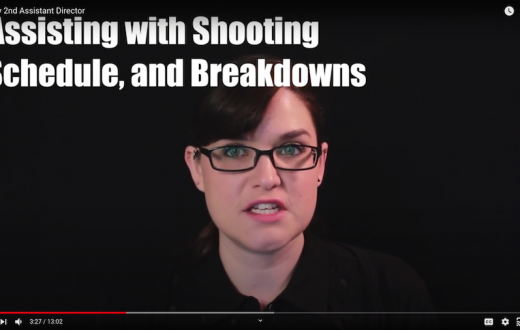It’s a common cry among newer actors: “How do I get an agent?”
But it’s also not all that uncommon among actors who have been around for a while. Sometimes you and your agent don’t see eye-to-eye on what sort of roles you should be reading for. Or maybe you or your agent feel that someone else would be better suited to serving your needs in that capacity. Sometimes your time with a particular agent just naturally comes to an organic close and it’s time to say amicable good-byes and move on to the next phase of your career.
For whatever reason, if you should find yourself shopping around for a new agent, here are a few things to keep in mind when setting up meetings.
1. This is an audition
Make no mistake: when you go in to meet with a potential new agent, you are auditioning. Even if they don’t ask you to read sides or do a monologue, this is nevertheless still a job interview. Agents, like casting directors, make assessments of actors that are based not only on what they do in character, but also on what their energy and demeanor is like when they’re not in character. That’s how an agent can best identify what roles and what types of projects you might be suited for. They are assessing you to see if you would make a good fit for the types of projects, the casting directors and directors they work with. Put on your game face and make whatever preparations you normally make for an audition. Do everything just as if you were going in for a very important read, because that’s exactly what this is. If nothing else, it’s an opportunity for you to show yourself as yourself in your best light.
2. Yes and…
It’s important, as with any audition, to be on your toes and be prepared to and able to react and adapt on the spot to whatever might be asked of you. A potential agent may ask you to read something cold, they may ask you to do a bit of improv, they may ask you to dust off a monologue–none of which was mentioned when you set up the appointment. Don’t get flustered; realize that in keeping with the idea that you are auditioning not only as an actor but as yourself. The agent is not only seeing how you perform, they’re checking out how you react. They want to know what to expect if they send you out to read with a director who is known for testing the actors he or she reads. Are you a calm, cool and collected actor who has the ability to roll with the punches, stay in the moment and deal with the unexpected? Or are you going to turn red and stutter and stammer? If they’re going to represent you as an agent, they want to be certain you’re going to represent them too, at any audition they send you on. An agent’s reputation is built on the actors he or she signs. Make sure you’re ready for anything.
3. Your resume and…
Your resume should be up to date–and it should be chock full of impressive projects, of course. And be prepared to talk about any one of them intelligently. Your potential new agent wants to know what makes you tick. Just as importantly as projects, make sure you’re listing any and all classes you’re taking and have taken. An agent wants to work with actors who are great at what they do, of course. But perhaps just as importantly, they want to work with actors who are constantly seeking to improve themselves and their skills–actors who are looking to up the quality of their “product.” This type of actor is a valuable asset to any agent, so make it clear how much work you do on your craft outside of auditioning and performing. Talk about classes, acting groups you’re part of, readings of new works you participate in, etc. Agents don’t want to work with lazy actors who are going to sit back and wait for the phone to ring with the perfect job on the other end. They want go-getters.
4. Agent does not equal manager
Agent also does not equal secretary, psychologist, or mommy. While agents of course want the same things as you–for you to succeed in your career as an actor–you have to come at your relationship with your potential agent with a reasonable idea of what you can expect them to do for you. They may have some references for you in terms of people who can help you with headshots, or they may have classes or acting coaches to recommend–or they may not. But generally speaking you should already be pretty autonomous and rolling along in all of these categories when you walk the door. No agent is looking for actors who are going to throw their hands up and say “What do I do now?” Part of what you are trying to present at this meeting is an image of a self-sufficient, self-assured actor who is already well on the way to taking their career to the next level. You want to make it clear you will make the agent’s work easy, not give him or her the impression they’re going to have to hold your hand.
5. Don’t forget…
You’re interviewing them too. Just like they say about going in to an audition, don’t give away all your power. An agent is a person you work with closely, one who should have some understanding of who and what you are as an actor and what you’re trying to do with your career. As an actor and a professional, you have agency and you have ideas of your own. If the vibe’s not there with a particular agent, it’s not there. When you’re at the stage of your career where you’re shopping around for an agent, you already have some experience, you have a decent resume, and you have some confidence that you know what you’re doing when it comes to the acting part of all this. Sure, this person could potentially help out your career, but you’re still the one who has to go out and audition and perform. If they have a vision for the types of roles and the types of projects you should be reading for that is wildly different from your own, then maybe it’s just not meant to be. And, much the same as with auditions, there are always other agents out there.
Bottom line is you should treat meeting an agent like an audition: Be prepared, be ready to change it up and go with whatever is thrown your way, and above all be yourself!







